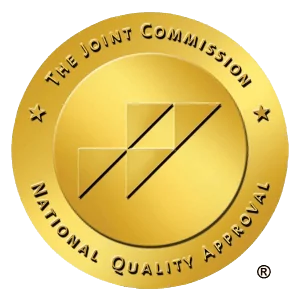Driving Under the Influence (DUI) not only poses severe risks to public safety, but can also lead to significant legal consequences, including the suspension of your driver’s license.
However, license suspension doesn’t have to be a dead end; it’s possible to regain your driving privileges with time and the right steps.
This article explores the journey from a DUI incident to driver’s license reinstatement, guiding you through the necessary steps to responsibly and legally get back on the road.
Understanding DUI Offenses
WHAT DOES IT MEAN?
Driving Under the Influence (DUI), also known as Driving While Intoxicated (DWI) in some jurisdictions, is a criminal offense that occurs when an individual operates a motor vehicle while impaired by alcohol or other substances, including both legal and illegal drugs, to a level that renders the individual incapable of safely operating the vehicle.
The most commonly recognized standard is a Blood Alcohol Concentration (BAC) limit of 0.08% for drivers aged 21 and over in the U.S., although some countries have lower limits, and penalties may apply even below this threshold if impairment can be demonstrated1.
For commercial drivers, the BAC limit is typically lower, often 0.04%, and for drivers under the legal drinking age, many jurisdictions have “zero tolerance” laws where any detectable alcohol can lead to DUI charges.
Increasingly, laws are also addressing impairment due to drugs other than alcohol, including both illegal substances and prescription or over-the-counter medications.
Penalties for DUI convictions vary widely, but can include fines, imprisonment, license suspension, mandatory education programs, and the requirement of an ignition interlock device.
DIFFERENT TYPES OF DUI CHARGES
| Type of DUI Charge | Description |
|---|---|
| Standard DUI/DWI | This charge applies when a driver operates a vehicle with a Blood Alcohol Content (BAC) above the legal limit, typically 0.08% for adults. |
| Aggravated DUI | This is a more severe charge typically resulting from multiple DUI offenses, causing injury or death, DUI with a minor in the car, or driving with a suspended license. |
| Drug DUI/DWI | This charge applies when a driver operates a vehicle while impaired by drugs, whether illicit, prescription, or over-the-counter. |
| Commercial DUI | Commercial drivers are held to a higher standard, typically with a BAC limit of 0.04%. A DUI charge while operating a commercial vehicle can lead to loss of commercial driving privileges. |
| Underage DUI | Most states have zero tolerance laws for drivers under 21. Any detectable amount of alcohol can lead to a DUI charge for underage drivers. |
Factors Contributing to DUI Arrests
Several factors can contribute to DUI arrests.
Substance abuse, including alcohol and illicit drugs, is a primary factor.
Individuals often underestimate their level of impairment and overestimate their ability to drive safely.
Social factors can also contribute, such as peer pressure to consume alcohol or drugs, or a lack of available alternatives like designated drivers or public transportation.
Additionally, mental health issues, including stress, depression, and anxiety, can lead to substance abuse as a form of self-medication, increasing the risk of DUI.
Lastly, a lack of understanding about the severity of DUI laws and their implications may contribute to decisions to drive while impaired.
Education and prevention programs are key in reducing these contributing factors and ultimately decreasing the number of DUI arrests.
For more factors visit our guide to Psychological DUI factors.
Arrest and Initial Proceedings
TRAFFIC STOP AND PROBABLE CAUSE
When a traffic stop occurs in relation to a suspected DUI offense, law enforcement officers must have probable cause to initiate the stop2.
Probable cause refers to reasonable grounds to believe that a crime has been committed, such as observing erratic driving behavior, smelling alcohol, or witnessing other signs of impairment.
The presence of probable cause is essential to ensure that individuals’ rights are protected and to uphold the legality of the subsequent DUI investigation and arrest.
FIELD SOBRIETY TESTS AND CHEMICAL TESTS
Field sobriety tests are commonly administered by law enforcement officers during a DUI stop to assess a driver’s level of impairment.
These tests include tasks such as walk-and-turn, one-leg stand, and horizontal gaze nystagmus (eye movement) test.
They aim to evaluate coordination, balance, and cognitive abilities affected by alcohol or drugs.
Additionally, chemical tests, such as breath, blood, or urine tests, may be conducted to measure the driver’s blood alcohol concentration (BAC) or detect the presence of drugs, providing objective evidence of impairment and supporting DUI charges.
BOOKING AND RELEASE PROCEDURES
After a DUI arrest, booking procedures take place, involving the collection of personal information, fingerprinting, and taking a mugshot.
The individual may be held temporarily in a holding cell until the booking process is complete.
Following booking, the release procedures can vary depending on the jurisdiction and circumstances.
Release options may include being released on bail, on one’s recognizance, or after posting a bond.
Alternatively, the person may be required to wait for a court appearance or be transported to a detention facility if unable to secure immediate release.
ADMINISTRATIVE LICENSE SUSPENSION (ALS)
Administrative License Suspension (ALS) is a legal procedure that allows law enforcement to immediately suspend the driver’s license of an individual arrested for DUI.
ALS is typically an administrative action taken by the Department of Motor Vehicles (DMV) or a similar agency, separate from the criminal court proceedings.
The length of the suspension can vary depending on the jurisdiction and the individual’s prior DUI history, often ranging from several months to a year or more.
ALS aims to swiftly restrict the driving privileges of suspected impaired drivers to enhance public safety while their DUI case is being resolved.
Legal Procedures and Court Proceedings
COURT PROCEEDINGS
Legal procedures and sentencing for Driving Under the Influence (DUI) offenses play a crucial role in maintaining public safety and deterring drunk driving.
In many jurisdictions, DUI offenses are taken seriously, and specific legal procedures are followed to ensure fairness and justice in the handling of such cases.
LEGAL PROCESS FOR DUI CASES
The court process, also known as the judicial process, is a structured sequence of legal proceedings that takes place after an individual is charged with a crime, such as a DUI.
This process provides a framework for the accused to defend themselves against the charges, and for the prosecution to present their case.
It ensures fairness, transparency, and adherence to the rule of law, beginning with the arraignment and potentially leading to a trial, verdict, and sentencing.
Understanding the court process is essential for anyone facing legal charges to effectively navigate the system and protect their rights.
| Legal Process Step | Definition |
|---|---|
| Arraignment | The initial court appearance where the defendant is formally charged and enters a plea (usually “guilty,” “not guilty,” or “no contest”). |
| Pre-trial Motions | Legal arguments presented before the trial begins. They may include motions to suppress evidence, dismiss charges, or request additional information. Plea bargaining can also occur at this stage. |
| Trial | If a plea agreement isn’t reached or the defendant pleads not guilty, the case proceeds to trial. Here, the prosecutor must prove beyond a reasonable doubt that the defendant was operating a vehicle under the influence. |
| Verdict | After all evidence has been presented and closing arguments made, the judge or jury will deliver a verdict. If the defendant is found guilty, the case proceeds to sentencing. |
| Sentencing | The court determines the penalties for a DUI conviction, which can include fines, jail time, probation, community service, DUI school, substance abuse counseling, and driver’s license suspension. |
| Appeal | If the defendant believes there were significant legal errors made during the trial, they may appeal the verdict to a higher court. |
Sentencing and Consequences
Determining factors in DUI sentencing
Determining factors in DUI sentencing refer to the elements considered by the court when deciding the severity and type of penalties to impose following a DUI conviction.
These factors include the defendant’s Blood Alcohol Content (BAC) level at the time of arrest, their past criminal and DUI record, and any aggravating or mitigating circumstances surrounding the DUI incident.
Understanding these factors is crucial as they significantly influence the potential legal consequences of a DUI charge.
Penalties for first-time offenders
Penalties for first-time DUI offenders vary by jurisdiction but typically include a combination of fines, probation, mandatory participation in a DUI education program, and potentially jail time, although this is often suspended for first-time offenders who didn’t cause an accident or injury.
Many jurisdictions also impose a driver’s license suspension, which could be immediate from the time of arrest.
In some cases, an ignition interlock device may be required once driving privileges are reinstated.
These penalties are designed not only to punish but also to deter repeat offenses and educate offenders about the dangers of impaired driving.
Enhanced penalties for repeat offenses
Repeated DUI offenses are taken very seriously by the legal system, and penalties typically increase significantly with each subsequent offense.
Enhanced penalties can include higher fines, extended periods of license suspension, longer mandatory DUI education programs, and increased jail or prison sentences.
Some jurisdictions also mandate the installation of an ignition interlock device for repeat offenders3.
In some cases, repeated DUI offenses can be classified as felony charges, leading to even more severe consequences.
The aim of these enhanced penalties is to deter repeat offenses and address ongoing issues with substance abuse and impaired driving.
Imprisonment, fines, and probation
Imprisonment, fines, and probation are common penalties for DUI convictions.
Imprisonment can range from a few days to several years, depending on the severity of the offense and the offender’s prior record.
Fines for DUI offenses can also vary widely, potentially reaching into the thousands of dollars.
Probation is another common penalty, requiring the offender to meet certain conditions, such as regular check-ins with a probation officer, abstaining from alcohol and drugs, or completing a DUI education program.
Failure to comply with probation conditions can result in additional penalties, including potential imprisonment.
License Suspension, Ignition Interlock Devices and Restricted License
LICENSE SUSPENSION
License suspension is a common penalty following a DUI charge.
This involves the temporary revocation of the offender’s driving privileges.
The length of the suspension can vary widely, typically ranging from a few months to several years, depending on the jurisdiction and the specifics of the offense.
In some cases, the suspension may be immediate, starting from the time of arrest.
During the suspension period, the individual is prohibited from legally operating any motor vehicle.
This penalty aims to discourage impaired driving and promote public safety on the roads.
IGNITION INTERLOCK DEVICES
Ignition interlock devices are often required for individuals convicted of a DUI, particularly for repeat offenders.
These devices, installed in the offender’s vehicle, function like a breathalyzer.
Before the vehicle can be started, the driver must blow into the device.
If the measured blood alcohol content is above a preset limit, typically very low, the vehicle will not start.
This requirement is designed to prevent individuals who have been convicted of a DUI from driving while under the influence again, thereby enhancing public safety.
The duration of this requirement can vary depending on the jurisdiction and the specifics of the offender’s case.
RESTRICTED LICENSE
After a DUI-related license suspension, some jurisdictions may allow individuals to apply for a restricted license.
A restricted license permits the individual to drive under certain limited circumstances, such as to and from work, school, or a court-ordered treatment program.
This aims to balance the need to discourage impaired driving and protect public safety with the recognition that completely losing the ability to drive can severely impact an individual’s daily life and livelihood.
Obtaining a restricted license often involves meeting specific conditions and possibly installing an ignition interlock device.
The eligibility and process for obtaining such a license vary widely, so legal advice is recommended.
SENTENCING AND PENALTIES
| Sentence/Penalty | Description |
|---|---|
| Fines | Financial penalties imposed by the court, which can range significantly based on the jurisdiction and severity of the offense. |
| Jail Time | For serious or repeat offenses, a jail sentence may be imposed. The length can vary significantly based on jurisdiction and specifics of the offense. |
| Probation | Instead of, or in addition to, jail time, the offender may be put on probation, requiring regular check-ins with a probation officer and adherence to certain rules. |
| Community Service | Offenders may be required to perform a certain number of community service hours as part of their sentence. |
| DUI School or Substance Abuse Counseling | Many jurisdictions require DUI offenders to complete an educational program or counseling to address substance abuse. |
| License Suspension | The offender’s driver’s license may be suspended for a period of time. This suspension can be immediate, starting from the time of arrest. |
| Ignition Interlock Device | Some jurisdictions require offenders to install an ignition interlock device in their vehicle, which requires the driver to pass a breathalyzer test before the vehicle can be started. |
Rehabilitation and Reinstatement
DUI education programs and counseling
DUI education programs and counseling are often mandated as part of the sentence for a DUI conviction.
DUI education programs typically involve classes that educate individuals about the dangers and consequences of impaired driving, aiming to prevent future offenses.
Counseling, on the other hand, may address underlying issues related to substance abuse.
These sessions can help individuals understand the factors that led to their DUI and provide them with tools to avoid repeating the behavior.
Both of these interventions aim to rehabilitate the offender and reduce the likelihood of repeat offenses, ultimately promoting public safety.
Substance abuse evaluation and treatment
Substance abuse evaluation and treatment are often required components of a DUI sentence, particularly for repeat offenders.
A substance abuse evaluation involves a professional assessment to determine whether the individual has an alcohol or drug addiction problem.
If an issue is identified, the court may mandate treatment, which can include counseling, therapy, or participation in a formal substance abuse recovery program.
The goal of this evaluation and treatment is to address the root causes of the individual’s impaired driving, providing them with the support and resources needed to manage their substance use, prevent future offenses, and improve their overall health and well-being.
Requirements for license reinstatement
Requirements for license reinstatement after a DUI conviction vary by jurisdiction, but they often involve fulfilling all the conditions of the original sentence, including completion of any imposed jail time, payment of fines, completion of DUI education programs or substance abuse treatment, and possibly installation of an ignition interlock device.
Additionally, the offender usually must complete the period of license suspension without further violations.
Some jurisdictions also require the offender to provide proof of insurance and pay a reinstatement fee.
The aim of these requirements is to ensure the offender has addressed the issues that led to the DUI and is prepared to drive responsibly and safely.
Reinstatement process and associated fees
The reinstatement process for a driver’s license after a DUI conviction typically involves several steps and associated fees.
Once all requirements of the DUI sentence have been fulfilled, the offender can apply for reinstatement with their local Department of Motor Vehicles (DMV) or equivalent authority.
This application often involves providing proof of completed DUI education or substance abuse treatment, proof of insurance, and sometimes evidence of an installed ignition interlock device.
The offender will usually need to pay a reinstatement fee, which varies by jurisdiction but can often be several hundred dollars.
There may also be fees for any required tests or administrative processes.
This reinstatement process and its fees are part of the overall penalties and deterrents associated with a DUI conviction.
Additional Fees and Considerations
Impact on auto insurance rates
A DUI conviction typically has a significant impact on auto insurance rates.
After a DUI, individuals are often classified as high-risk drivers by insurance companies, leading to substantial increases in premium rates.
This increase can be double or even triple the original rate and can remain in effect for several years.
In some cases, the insurance company may choose not to renew the policy altogether.
Additionally, many jurisdictions require individuals convicted of a DUI to file an SR-22 form with their insurance company, proving they carry the state’s minimum required liability insurance4.
This form often leads to further increases in insurance costs.
Potential employment consequences
A DUI conviction can potentially have serious employment consequences.
For individuals whose jobs involve driving, such as commercial truck drivers or delivery drivers, a DUI conviction can lead to immediate job loss.
For others, job impacts may be less direct but still significant.
Some employers conduct regular background checks, and a DUI conviction could lead to disciplinary action or even dismissal, particularly in sectors where a clean record is essential.
Even when job loss doesn’t occur, the time needed to attend court dates, fulfill sentencing requirements, or serve jail time can interfere with work schedules.
Furthermore, job searching can be more difficult with a DUI on record, as many employers are hesitant to hire candidates with criminal records.
Ignition interlock programs and monitoring fees
Ignition interlock programs are often a requirement for individuals convicted of a DUI, particularly for repeat offenders.
These programs involve the installation of an ignition interlock device, a kind of breathalyzer, in the offender’s vehicle.
This device prevents the car from starting unless the driver provides a breath sample with a blood alcohol content below a preset limit.
Typically, there are costs associated with this program, including installation, monthly rental, and routine maintenance or calibration of the device.
These costs are usually the responsibility of the offender.
There may also be monitoring fees associated with ensuring compliance with the ignition interlock program.
These programs and associated costs serve as both a deterrent and a safety measure to prevent individuals from driving under the influence again.
Let us help you start your journey to recovery.
Navigating Life After DUI
RECOVERY AND NORMALCY AFTER DUI
One of the most significant steps towards recovery and resuming normalcy is reinstating your driver’s license.
While doing so, it’s crucial to seize the opportunity for self-improvement and rehabilitation.
Enrolling in a substance abuse program, like the one here at Cornerstone Healing Center in Scottsdale, Arizona, can be a transformative step towards sobriety, personal growth, and enhanced public safety.
We offer educational DUI programs specifically tailored for DUI or minor drug offenders, providing valuable insights about the dangers and consequences of impaired driving.
In addition to alcohol (and drug) treatment, Cornerstone offers DUI classes, alcohol screening, and alcohol education.
Simultaneously, fulfilling all the court-mandated obligations is necessary not just for legal compliance, but also for taking responsibility for your actions.
This includes paying all fines, completing probation requirements, installing an ignition interlock device if required, and serving any imposed jail time.
It’s a process that may seem daunting initially, but by meticulously following all the legal procedures, reinstatement is attainable.
The goal of these procedures is not just punishment, but, more importantly, rehabilitation and prevention of future offenses.
RESPONSIBLE DRIVING AND NOT RE-OFFENDING
From the immediate aftermath of a DUI arrest to navigating different types of charges, understanding the legal process, and dealing with various penalties such as license suspension, ignition interlock devices, fines, and potential jail time, the journey is fraught with complexity.
Substance abuse evaluation, DUI education programs, and potential employment impacts further underscore the seriousness of DUI offenses.
Despite these challenges, the path to license reinstatement is possible, albeit requiring diligent fulfillment of all court-mandated obligations and bearing the associated costs.
However, the ultimate goal should always be to avoid driving under the influence in the first place.
Responsible driving not only ensures your safety but also protects the well-being of others on the road.
If you are struggling with alcohol or have been charged or convicted with a DUI, please contact us at (480) 863-0217 for a free and confidential assessment with one of our many staff members.
We at Cornerstone are available to help you or a loved one who has received a DUI in Arizona and other states.
Remember, while driving under the influence is a grave mistake, it doesn’t have to define the rest of your life!

Contributor: Julie Miller
Julie is a recovery advocate, with over two years sober. She is a recovery speaker who believes people can change for the better. Her mission is to write factual, helpful information about addiction, treatment, and recovery. She believes that no one should be left in the dark about the process at any stage of their recovery.







